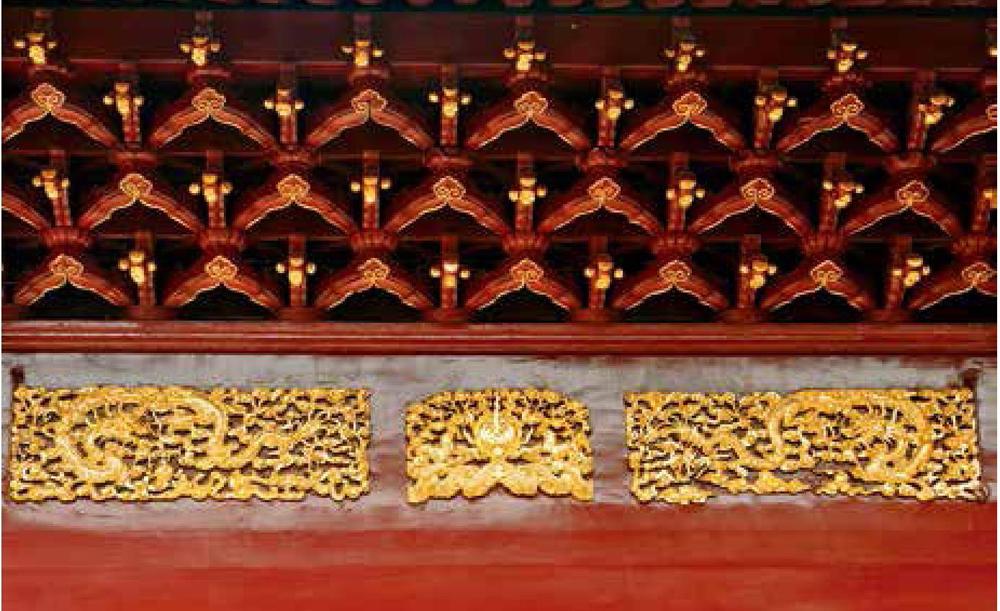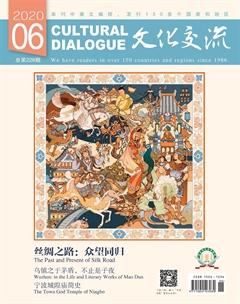日本文化人“速写”的中国学者
周维强



“王先生寡言,我也少语,二人对坐,常常陷入沉默,我勉强问了一些元曲方面的问题,但王先生的回答都非常简单,谈话始终活跃不起来”。
明治维新之后的一些日本文化人,特别是其中的汉学家和作家,既精熟中国文化,又有西方近代文明的修养,融会东西。他们“写生”中国的人文学者,一般都以明晰的笔触真实地表达自己的感受和印象,钉是钉铆是铆,不含含糊糊吞吞吐吐。所以,他们从自己的视角来看同时代中国治中国文化的学者,以文字作“速写”,也就颇有意味了。
王国维:“不屑客套的寒暄”
学者王国维,生于1877年,卒于1927年,字静安,又作静庵,晚号观堂,浙江海宁人。
日本汉学家青木正儿数次访问王国维,在他写的关于中国文化的随笔集《竹头木屑》里,有文章《王静庵先生追忆》,里面分两则:《初次会面》写于昭和十二年(1937年)5月;《王先生的辫子》写于昭和二年(1927年)8月。
明治四十五年(1912年),青木正儿25岁,大学毕业的第2年,这一年2月上旬,青木正儿访问了正在日本京都的王国维先生。初见面,王国维给青木正儿的印象是“留着辫子长得像个乡下人似的”。王国维寓所的客厅里摆放着汉籍和若干英文书,青木正儿以为是戏曲方面的,不料是“晦涩的哲学书籍”。青木正儿文章里写道:“王先生说没读过莎士比亚,问他中国戏剧,答曰一向不喜欢看。问音乐方面,答曰不懂音乐,但告诉我清吴颖芳《吹豳(bīn)录》对音乐见解颇精。”青木正儿后来虽细心寻求,但还是没能见到这部书,到北京留学时在目录上查到北平图书馆藏有《吹豳录》五十卷抄本。青木正儿在昭和十二年(1937年)5月写的文章里感叹“先生博学亦如此”。青木正儿这次访问后所得印象是,“先生是朴学之人,缺少艺术氛围”。
几天后,王国维来到青木正儿的住所访问,“先生久久地望着庭院,赞叹日本家屋树木茂盛”,“王先生寡言,我也少语,二人对坐,常常陷入沉默,我勉强问了一些元曲方面的问题,但王先生的回答都非常简单,谈话始终活跃不起来”。
这几笔的写实,勾勒出王国维先生的性格和学问。
大正十一年(1922年),青木正儿在4月里访问了寓居上海的王国维先生;大正十四年(1925年),这时王国维已执教于北京的清华大学,这一年4月,青木正儿游览北京西山后到清华拜访王国维先生,“当然先生还留着他的辮子”,王国维对青木正儿说“我还不知道西山”,又补充说自从住进这里,没有去过城里一次。青木正儿因此联想到“那些王朝代兴之际,数年足不入都城的古代先贤风格,充满了尊敬之念和恻隐之情,不禁低下了头”。
青木正儿对王国维先生说,元以前的戏曲史已经有先生的大著,自己便想搞搞明以后的戏曲史。王国维先生“谦逊道自己的著作不足挂齿”。王国维先生又对青木正儿说,“明以后的戏曲史没有意思,元曲是活的,而明曲是死的”。青木正儿当时听了王国维先生的话“感到一些反感”,他在文章里说自己深服王先生的著述,但是明代以后的“先生的残羹冷饭”,自己也是“甘愿拾先生牙慧”。青木正儿又说,现在写这篇文章时转而想想,“先生当时或许是恳切地劝告我应该采取精华”。
青木正儿昭和二年(1927年)8月写这一则随笔时说:“先生不屑客套的寒暄,直言胸臆的风格正是我所敬仰的。”此时,王国维先生已在这一年的6月2日自沉昆明湖而逝了。这篇文章应该是为了纪念王国维先生而写的。
张元济:“白皙美好之大丈夫”
张元济,生于1867年,卒于1959年,字菊生,浙江海盐人,出版家、教育家、实业家,著有《校史随笔》等。
内藤湖南于1899年11月初在上海与张元济谈论时务。《禹域鸿爪记》里写张元济:
“张氏乃戊戌政变以前,与康南海等同为湘抚陈宝箴等所保荐之五人才之一。时年三十三岁,浙江秀水县(即嘉兴府治)人氏,白皙美好之大丈夫也。在北京时,尝创办通艺学堂,引导后进。颇通英文,盖亦江浙间之才俊矣。”
内藤湖南会晤张元济时,张元济尚未进入商务印书馆。文中云张元济“白皙”,盖指张元济肤色,此亦可知张元济书香世家出身,营养颇佳,“白皙美好之大丈夫”,仪表堂堂,一表人才也。
陈寅恪:“看起来很敏锐”
陈寅恪,生于1890年,卒于1969年,字鹤寿,江西修水人。学者。
日本汉学家吉川幸次郎年轻的时候,曾在1928年至1931年间受文部省的委派留学中国,晚年口述的《我的留学记》追述在中国的所见所闻所历。当时有一回,版本学家和藏书家徐鸿宝(即徐森玉)先生要把吉川幸次郎等一些日本留学生介绍给陈寅恪,就请来了陈寅恪一起吃晚饭。吉川幸次郎因此得到机会见到了陈寅恪先生。《我的留学记》一书里,吉川幸次郎写道:
西田几多郎是公认的日本近代哲学史上最有代表性的哲学家。
和吉川幸次郎一同留学中国的仓石武四郎,也是在这一次宴会上见到了陈寅恪。仓石武四郎在他的《述学斋日记》里,记录的时间是5月27日,年份是昭和五年(1930年)。宴会的地点是宣南广和居。设宴的主人,除了徐森玉,还有赵万里、钱玄同先生。
仓石武四郎在日记里这样写陈寅恪先生:
“陈氏论如利刃断乱麻,不愧静庵先生后起矣。”
静庵先生,即王国维先生。仓石武四郎所得印象也是和吉川幸次郎相同,一个比作西田几多郎,一个以为是继王国维的后起之秀。周一良先生在给中华书局出版的《仓石武四郎中国留学记》一书写的序里因此说:仓石武四郎、吉川幸次郎“他们两位是很有眼力的”。
辜鸿铭:“目光炯炯,排闼而入”
辜鸿铭,生于1857年,卒于1928年,名汤生,字鸿铭,祖籍福建惠安,生于南洋英属马来西亚槟榔屿。
日本作家芥川龙之介大正十年(1921年)3月下旬至7月下旬游历中国。在上海,路透社驻沪记者钟斯执着芥川龙之介的手说:“到中国,紫禁城不看亦可,勿忘见辜鸿铭。”芥川龙之介1925年在东京的改造社出版的《中国游记》中有一篇写他在北京拜访辜鸿铭。
辜鸿铭当时居住在东椿树胡同18号院。芥川龙之介到了辜鸿铭的寓所,佣仆引他入厅堂,待之未足一分钟,辜鸿铭即进来。芥川龙之介写道:
“待之未足一分,有一老人,目光炯炯,排闼而入……”
这“排闼而入”真是有气势。
辜鸿铭一边“排闼而入”,一边口操英语,曰:“欢迎,请坐。”
辜鸿铭“辫发花白,着白色大褂儿。因鼻尺寸短,故容颜略似蝙蝠”。“蝙蝠”这个比喻甚为形象。“先生与仆语,几上置白纸数页,手捉铅笔如飞,口中操英吉利语不绝。于耳不敏如仆者,诚便利之会话法也”。“仆”是芥川龙之介的谦称。可见辜鸿铭思维敏捷。
辜鸿铭和芥川龙之介纵谈古今中外,一会儿议论段祺瑞、吴佩孚,一会儿又说托尔斯泰。芥川龙之介文章里说“先生议论风发,气宇轩昂,目光益发如炬,容颜益发似蝙蝠”。
芥川龙之介亦感于辜鸿铭所论,问:“何以先生慨于时事而不欲关与时事乎?”辜鸿铭“恨恨然,奋笔大书曰:‘老、老、老、老、老……”
一位“排闼而入”的气概非凡、精气神十足的老人,跃然纸上。
章太炎:“永远冷然的眼睛”
章太炎,生于1869年,卒于1936年,浙江余杭人,字枚叔,后易名炳麟。
作家芥川龙之介1921年初春访问中国,在上海造访过章太炎先生。芥川龙之介看到太炎先生的书斋里,“不知是出于何种趣味,有一条巨大的鳄鱼标本匍匐在墙上”,书斋为书卷所埋没,芥川龙之介觉得“寒冷彻骨”。章太炎先生“身着深灰色大褂儿,外加一件厚毛皮里子的黑色马褂儿”,坐在“铺着毛皮的藤椅”上,雄辩地谈论,芥川龙之介听得“连香烟也忘了吸”。
芥川龙之介描写章太炎先生的外貌:
“不过说句失礼的话,先生尊容绝不够伟岸。皮肤几乎是黄色的,唇髭与颌须少得可怜。额头突兀耸起,令人误以为是个瘤。唯有一双细如丝线的眼睛,在文雅的无边眼镜后面永远冷然的眼睛,确乎非同寻常。”
芥川龙之介接着说:“为了这双眼睛,袁世凯竟会让先生受囹圄之苦。同时也是为了这双眼睛,他虽然一度将先生监禁起来,却终于未敢加以杀害。”
仓石武四郎1928~1930年受文部省的委派留学中国,他的《述学斋日记》里记录了在上海拜访章太炎先生,时间是1930年7月初。仓石武四郎写道:
“冒雨访章太炎先生于同孚路。先生童颜短发,不饰边幅,尤见其古怪也。操笔论对,颇出人之意表。其云:‘治汉学者不可有好奇之心。寥寥短句,足箴举世。”
和朱玉麒一起辑注《仓石武四郎中国留学记》一书的荣新江,在这部书的前言里说:仓石武四郎通过自己的访谈,言简意赅地记述太炎先生的学问及其风貌,“非常值得玩味”。
近世日本文化人“写生”近世中国的人文学者,这恐怕是一个有意思的题目。比如,吉川幸次郎在他的书里写他听钱玄同的课,钱玄同上课“还戴着白手套”,这个细节,我没有在其他人的文章里见到过,包括钱玄同的学生寫的文章。吉川幸次郎还说钱玄同先生的课“语言清晰,内容易懂”“最有系统性”,课结束的时候,大家都鼓掌了,但在钱先生的课之外,不大有这样的事。
可惜我还没能找到上述中国人文学者的“写生”上述日本文化人的文章。不然两相对照着来阅读,恐怕能寻觅出近世中日学术文化交流的更丰富的趣味和更多的意味。
(除署名外,本文图片由视觉中国提供)
Some Japanese scholars after Meiji Reform (1868-1912) were excellent sinologists versed in both Chinese culture and western culture. They never hesitated to frankly say what they saw in Chinese scholars they met. These textual sketches of Chinese scholars look quite fascinating today.
Wang Guowei
Aoki Masaru (1887-1964) visited Wang Guowei (1877-1927), a Chinese master of ancient poems and theater, several times. He mentions two encounters with Wang in Japan.
In February 1912, the 25-year-old Aoki Masaru, a young scholar who had just graduated from university in the previous year, visited Wang Guowei at his home in Kyoto, Japan. In an essay written in August 1927, Aoki Masaru mentioned that Wang looked like a country fellow with a long braid. In the sitting room where the two scholars met were some books in both Chinese and English. The young scholar guessed these books were all about theater. To his surprise, they were all about philosophy. Wang confessed that he hadnt read Shakespeare, that he disliked Chinese opera plays, and that he did not have any professional knowledge of music. However, Wang offered a piece of professional knowledge: a book by Wang Yingfang of the Qing Dynasty (1644-1911) had some very profound insight into music. Years later the Japanese sinologist spotted the book in a catalogue while studying in Beijing. Aoki Masaru was deeply impressed by Wangs knowledge of ancient Chinese literature. A few days after the first visit, Aoki Masaru came again to visit Wang at his home in Kyoto. They sat face to face awkwardly. The Japanese scholar asked questions about the Yuan poems and Wang gave brief answers. The conversation never had a chance to get animated and most of the time, both of them were silent.
In April 1922, Aoki Masaru visited Wang Guowei at his home in Shanghai. In April 1925, he visited Wang on the campus of Tsinghua University as Wang was teaching at the university. They talked about theater of the Yuan and the Ming. Wang advised the Japanese scholar not to bother to study the theater of Ming. After Wang passed away in June, 1927, Aoki Masaru wrote in an essay dated August 1927 that Wang dismissed small talks and pleasantries and he respected the masters straightforward style.
Zhang Yuanji
Zhang Yuanji (1867-1959), a native of Haiyan, Zhejiang, was a publisher, educator, and industrialist. Naito Konan (1866-1934), a prominent Japanese sinologist, met Zhang Yuanji (1867-1959) in November 1899 in Shanghai. Their talked about current affairs. Naito Konan wrote in a book about his China tour that 33-year-old Zhang was one of the five young talents recommended to Emperor Guangxu before the coup by Dowager Empress Cixi in 1898. Naito Konan mentioned that Zhang was a native of Jiaxing and had proficiency in the English language. He also said that Zhang looked fair and handsome. It can be deduced from the description that Zhang came from a family of scholars and his diet was quite good. When the Japanese sinologist met Zhang in Shanghai, Zhang was not yet to work at the Commercial Press.
Chen Yinque
Chen Yinque (1890-1968) was a prominent Chinese scholar. Kojiro Yoshikawa (1904-1980), a prominent Japanese sinologist, studied in China from 1928-1931 and met Chen at a dinner. Takeshiro Kuraishi (1897-1975), also a Japanese sinologist, was at the dinner too. In Takeshiro Kuraishis diary, the dinner occurred on May 27, 1930. Kojiro Yoshikawa wrote in a book about his overseas studies in China that he was under the impression that Chen was intelligent and reminded him of the young Kitaro Nishida (1870-1945), the most significant and influential Japanese philosopher of the 20th century. Takeshiro Kuraishi said in his diary that Chens scholarly ideas were as sharp as a knife and that Chen reminded him of Wang Guowei.
Gu Hongming
Gu Hongming (1857-1928) was a prominent scholar. Akutagawa Ryunosuke (1892-1927), a prolific Japanese writer known especially for his stories based on the events in Japanese past and for his stylistic virtuosity, took a tour in China from March to July 1921. In 1925 he published a travelogue about the China tour. He mentioned in one chapter that, shortly after he arrived in Shanghai, he learned from a journalist working in Shanghai that he could forget about the Forbidden City but he should never forget to visit Gu Hongming.
So Akutagawa Ryunosuke went to see the prominent Chinese scholar when he was in Beijing. One minute after Akutagawa Ryunosuke was ushered into the meeting room, an old man strode in, his eyes bright. The old man with the bright eyes was Gu Hongming. Gus white hair was made into a long braid, which was a personal statement he wanted to make. They chatted by writing Chinese words on paper on the desk. Gu spoke English but wrote in Chinese. The conversation went smoothly. They talked about some Chinese politicians and they talked about Tolstoy. The master talked as if there had been a big wind; his eyes were as bright as a torch, and he looked majestic, observed Akutagawa Ryunosuke in the travelogue. Asked why he cared about what was going on in China but distanced himself from participating, Gu angrily wrote down “old” many times on paper.
Zhang Taiyan
Zhang (1869-1936) was a prominent scholar and revolutionary. Akutagawa Ryunosuke visited Zhang in Shanghai during his China tour from March to July 1921. On the wall of Zhangs study there was a huge specimen of a crocodile. The Japanese writer felt cold in the study where there were heaps of books. He described the Chinese master as a man who didnt look majestic at all, but he was deeply impressed by Zhangs unusually cool eyes behind the rimless eyeglasses. He commented that Yuan Shikai threw Zhang into prison for the coolness of the eyes but dared not to kill him also for the coolness of the eyes.
Takeshiro Kuraishi visited Zhang Taiyan in Shanghai during his study in China from 1928 to 1930. He made the visit on a rainy day in early July 1930. According to Kuraishi, the master had short hair and looked like a child. The Japanese scholar reasoned that apparently the master didnt pay much attention to his look. They talked by writing Chinese words. The young Japanese sinologist was deeply impressed by the Chinese scholar. One of the things the master said was a sinologist must not have a curiosity. Takeshiro Kuraishi considered the advice as a motto.

